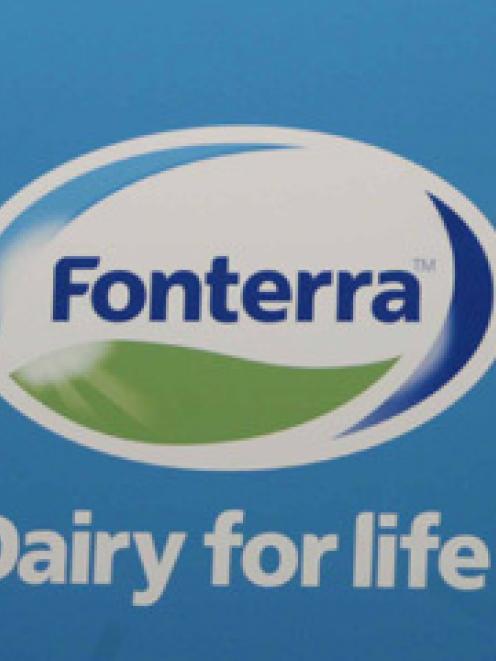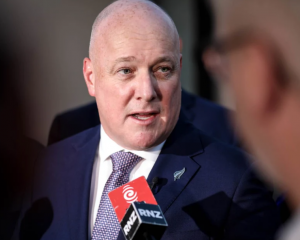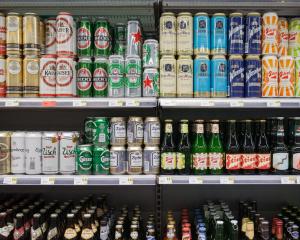
Fonterra chief executive Andrew Ferrier said the company recognised milk was an important part of New Zealanders' diets and said it would absorb any further international price increases.
"We recognise milk is an important part of the diet in New Zealand and we want to ensure that future generations of New Zealanders grow up enjoying it every day," Mr Ferrier said.
The price of milk had risen steadily over recent months with world dairy prices going up by more than 26 percent since December, he said.
"Fonterra Brands New Zealand (FBNZ) had already absorbed around $10 million of increased costs and with this commitment any further increases during the year will also be absorbed."
He said food prices were expected to remain strong due to a "fundamental change in supply and demand for food internationally".
"While these prices are good for food exports and the New Zealand economy, New Zealanders are feeling the effects of this in their shopping trolley," he said.
Mr Ferrier called on retailers to get behind Fonterra's commitment "for the benefit of New Zealand consumers".
FBNZ managing director Peter McClure said the company wanted milk to remain an everyday part of New Zealanders' diets.
"Global price increases will continue to impact the price that dairy manufacturers like ourselves pay, however, we want milk to remain an everyday part of the Kiwi diet so we’ve made a commitment to absorb any extra costs for the rest of the year," he said.
The announcement comes as Fonterra has foreshadowed a bonanza payout for the current dairy season of $7kg-$7.10kg, with 10,463 farmers each expected to receive an average gross payout of over $800,000 -- with some industry observers predicting that average payouts may be closer to $900,000.
The money paid to farmers -- most of it from export earnings -- will provide a $9 billion shot in the arm for the economy.
Agriculture Minister David Carter welcomed Fonterra's decision but ruled out introducing government subsidies to keep the price down.
"I think they've acknowledged the public concern about increasing milk prices ... they have recognised the impact it's having, particularly on low income New Zealanders so I congratulate Fonterra for doing it," Mr Carter said.
"As an export nation reliant on the international price for many goods we have to accept that at times of high prices... the New Zealand economy will do well, but the adverse affect will be that it will cost New Zealanders more," he said.
New Zealand Food and Grocery Council chief executive Katherine Rich welcomed the decision, while at the same time criticising "misleading assertions that milk has somehow become a luxury item".
"This is a big financial commitment by Fonterra and we hope other Kiwis have some understanding and appreciation of just how significant this decision is," said Mrs Rich.
"At the same time it is important to correct some misleading assertions that milk has somehow become a luxury item in New Zealand."
She said figures collected by the Department of Statistics showed that in "real dollar terms milk" was actually cheaper than it was 10 years ago.
"I know that this goes against the sense that many Kiwis have about rising costs, but price increases never occur in an economic vacuum." The high cost of milk had come under severe criticism earlier in the week, with Northland's Manaia Health PHO chief executive Chris Farrelly saying it was a national outrage that a country which produces 15 billion litres annually could not supply cheap milk to the domestic market.
Mr Farrelly said that the price of a two litre bottle of milk in Whangarei supermarket was up to $4.79 and the cheapest was $3.65.
"Milk is vital for children’s health and bone development. Milk and milk products provide energy, protein, fats, vitamins and minerals," he said.
"It should be seen as an essential food – not a luxury," said Mr Farrelly.
A children’s nutrition survey showed that milk consumption had dropped by a third since the 1980s, replaced by soft drinks which were usually much cheaper.
"Low income families simply cannot afford to drink milk," said Mr Farrelly.
"It’s no wonder we are seeing increasing childhood obesity and diabetes if families are swapping milk for fizzy," he said.












